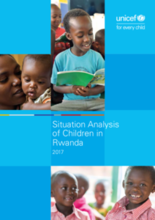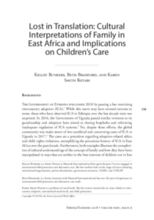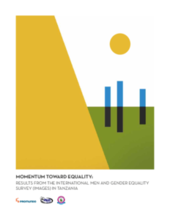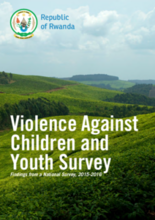Displaying 761 - 770 of 1617
The report presents an overview of the Situation of Children and Women in Kenya using the results of the most significant research and analysis between 2014 and 2017 in areas related to the wellbeing of children and women.
This situation analysis provides a timely assessment of progress for children, achievements to date, and remaining challenges and barriers to the realization of children’s rights in Rwanda.
This article explores Intercountry Adoption (ICA) practices and the related expansion of orphanages (also referred to as residential care) in the East African context.
Catalyzing Business Skills is a suite of three financial literacy and business skills curricula developed by Making Cents International and Child Fund's Economic Strengthening to Keep and Reintegrate Children into Families (ESFAM) project in Uganda.
These Standard Operating Procedures (SOPs) have been developed based on current, evidence-based practices to facilitate joint action by all health actors to effectively respond to child sexual violence in Kenya.
The aim of this report from SOS Children's Villages is to increase the knowledge and understanding of the needs and rights of young people ageing out of alternative care around the world, in order to inform strategies, policies and services to improve their life chances and outcomes through appropriate preparation for leaving care as well as after-care support.
The present study has thoroughly examined the experiences and perspectives of left-behind children of migrant mothers in Addis Ababa and Sinana district.
The International Men and Gender Equality Survey (IMAGES) is a comprehensive, multi-country study on men’s and women’s realities, practices, and attitudes with regard to gender norms, gender-equality policies, household dynamics, caregiving and fatherhood, domestic violence, sexual diversity, health, and economic stress, among other topics.
Reframing Early Childhood Development and Learning is a communications toolkit for building public support in Kenya for better child development policies and programmes.
This report presents findings from the national Violence Against Children Survey (VACS), administered in Rwanda from 2015-2016, and lays out recommendations for addressing and preventing violence against children based on those findings.







